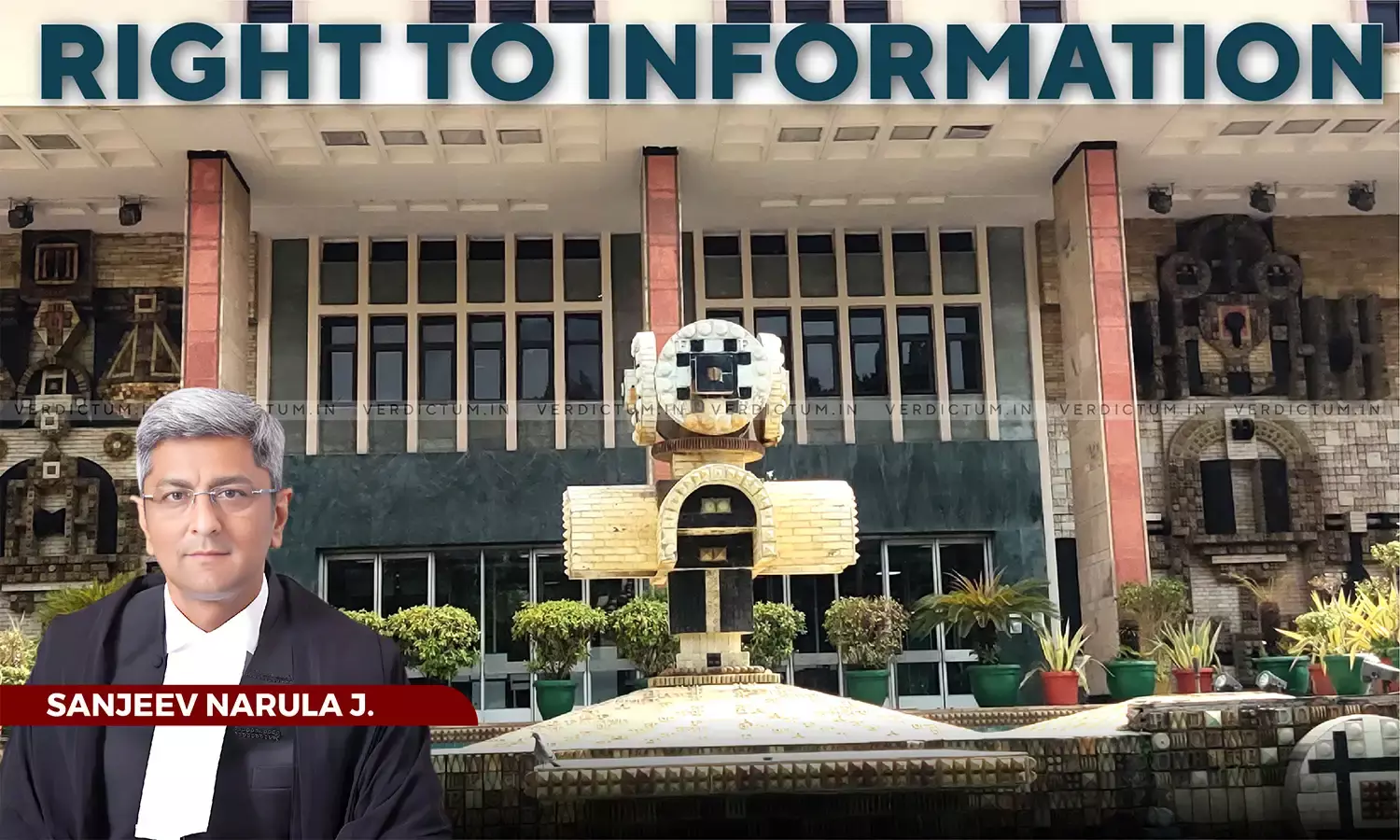Compensation Awarded Has To Directly Correlate With Personal Detriment Experienced By Complainant: Delhi HC Explains Compensatory Powers Of CIC
The Delhi High Court observed that compensation awarded by the Central Information Commission has to directly correlate with the personal detriment experienced by the complainant.
The Court said that awarding compensation based on losses suffered by parties other than the complainant stretches beyond the intended scope of Section 19(8)(b) of the Right to Information Act, 2005. The Section empowers the CIC or the SIC to require the public authority to take necessary steps for compliance with the provisions of the Act and also direct the public authority to compensate the complainant.
The Court was hearing a Writ Petition under Article 226 of the Constitution of India, 1950 against the award of compensation under Section 19(8) of the Right to Information Act, 2005 by the Central Information Commission while deciding the second appeal.
The bench of Justice Sanjeev Narula observed, “while the CIC possesses the authority to award compensation to information seeker, it is imperative that such compensation directly correlates with the personal detriment experienced by the complainant—Respondent No. 2 in this case. Awarding compensation based on losses suffered by parties other than the complainant stretches beyond the intended scope of Section 19(8)(b) of the RTI Act.”
Advocate Kunal Vajani appeared for the Appellant and Advocate Om Prakash appeared for the Respondent.
Brief Facts-
Respondent in the present case filed an RTI application seeking information about the parking area around SCOPE Complex. After receiving an inadequate response, he appealed, and the First Appellate Authority directed the Petitioner to provide the requested information. The Petitioner’s non-compliance with the order of the Appellate Authority led to the matter being escalated to the CIC, which issued a show cause notice regarding compensation of Rs. 50,000. The CIC allowed the appeal and awarded the compensation. The Petitioner now challenged the order of CIC as being without jurisdiction, arbitrary, and lacking application of mind.
While explaining the compensatory powers of the CIC the Court observed, “The RTI Act does not place an upper limit on the amount of compensation that the CIC can award under Section 19(8)(b) of the Act. This provision is intended to redress any loss or detriment that the complainant may have suffered due to non-compliance with the Act by a public authority. However, CIC’s power to award compensation to the complainant under the aforenoted provision must necessarily be connected to or a consequence of the denial of complete information as sought by the complainant. CIC cannot take recourse to Section 19(8)(b) of the Act to provide compensation in relation to any other dispute that an information seeker may have with the public authority which is not relatable or connected with the provisions of the Act.”
The Court noted that the delay in providing the requested information undoubtedly hindered Respondent in pursuing timely legal remedies as a consequence, Respondent incurred unnecessary expenses for parking facilities that should have been available at no cost.
“Therefore, the failure to provide timely and accurate information not only contravened the provisions of the RTI Act but also led to undue financial burdens on Respondent No. 2, justifying the need for compensation.”, the Court said.
Accordingly, the Court did not find any ground to interfere with the award of compensation.
Finally, the Court disposed of the Petition.
Cause Title: PIO, RP Cell, South Delhi Municipal Corporation v. Central Information Commission (Neutral Citation: 2024:DHC:5801)
Appearance:
Appellant: Adv. Kunal Vajani
Respondent: Adv. Om Prakash, Adv. Pankaj Kumar and Adv. Smit Singh Kuru




